
Kampala: The Heartbeat of Uganda
Welcome to Kampala, the bustling capital of Uganda. Nestled on the shores of Lake Victoria, this vibrant city offers a unique blend of modernity and tradition. Kampala is known for its friendly locals, lively markets, and rich cultural heritage. As you wander through the city, you'll encounter a mix of colonial architecture, contemporary buildings, and historic sites that tell the story of Uganda's past and present. One of the must-visit spots in Kampala is the Uganda Museum, where you can explore exhibits on the country's history, culture, and natural heritage. For a taste of local life, head to the Nakasero Market, a bustling hub where you can find fresh produce, spices, and handcrafted goods. Don't miss the chance to visit the Kasubi Tombs, a UNESCO World Heritage site that serves as the burial grounds for the Buganda kings. For those looking to unwind, Kampala offers beautiful green spaces like the Entebbe Botanical Gardens and the serene shores of Lake Victoria. The city's vibrant nightlife is also worth experiencing, with numerous bars, clubs, and restaurants offering a taste of Ugandan cuisine and entertainment. Whether you're a history buff, nature lover, or simply looking to immerse yourself in a new culture, Kampala has something for everyone.
Local tips in Kampala
- Visit during the dry seasons (June to August and December to February) for the best weather.
- Use Boda Bodas (motorcycle taxis) for quick and affordable transport, but always prioritize safety.
- Bargain at local markets to get the best prices on souvenirs and fresh produce.
- Try local dishes like Rolex (a rolled chapati with eggs) and Luwombo (stewed meat or fish in banana leaves).
- Respect local customs and dress modestly when visiting religious sites.
Neighbourhoods in Kampala
Kampala: The Heartbeat of Uganda
Welcome to Kampala, the bustling capital of Uganda. Nestled on the shores of Lake Victoria, this vibrant city offers a unique blend of modernity and tradition. Kampala is known for its friendly locals, lively markets, and rich cultural heritage. As you wander through the city, you'll encounter a mix of colonial architecture, contemporary buildings, and historic sites that tell the story of Uganda's past and present. One of the must-visit spots in Kampala is the Uganda Museum, where you can explore exhibits on the country's history, culture, and natural heritage. For a taste of local life, head to the Nakasero Market, a bustling hub where you can find fresh produce, spices, and handcrafted goods. Don't miss the chance to visit the Kasubi Tombs, a UNESCO World Heritage site that serves as the burial grounds for the Buganda kings. For those looking to unwind, Kampala offers beautiful green spaces like the Entebbe Botanical Gardens and the serene shores of Lake Victoria. The city's vibrant nightlife is also worth experiencing, with numerous bars, clubs, and restaurants offering a taste of Ugandan cuisine and entertainment. Whether you're a history buff, nature lover, or simply looking to immerse yourself in a new culture, Kampala has something for everyone.
When is the best time to go to Kampala?
Iconic landmarks you can’t miss
Sheraton Kampala Hotel
Experience luxury and comfort at Sheraton Kampala Hotel, your gateway to the heart of Uganda with stunning views and exceptional service.
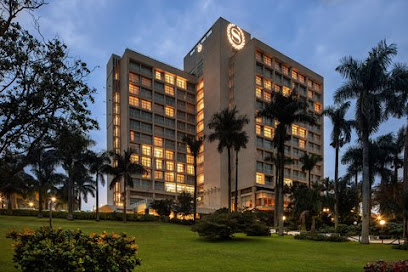
Owino Market/Kampala
Explore Owino Market in Kampala for a lively experience of local culture, food, and shopping in Uganda's vibrant capital.
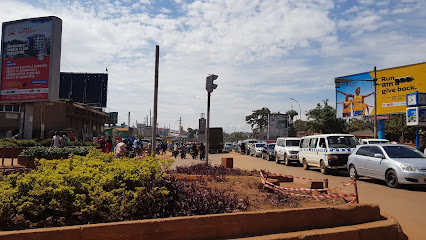
Kampala Boulevard
Explore the vibrant shopping scene at Kampala Boulevard, where modern shopping meets Ugandan culture in the heart of Kampala.
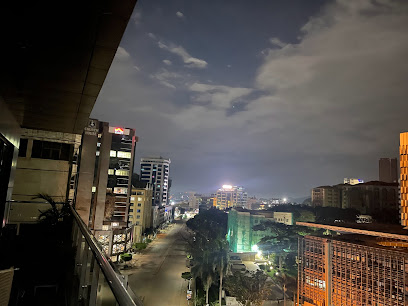
Digisat Surveillance Home (City square Kampala)
Explore the vibrant heart of Kampala at Digisat Surveillance Home, a cultural hub and lush park perfect for relaxation and local experiences.
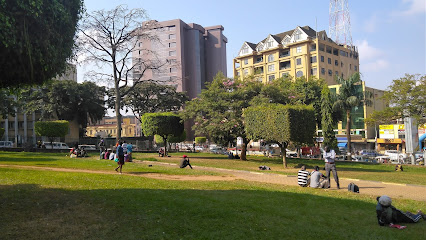
Uganda Museum
Explore Uganda's rich cultural heritage at the Uganda Museum, home to artifacts and exhibits showcasing the nation's history and traditions.
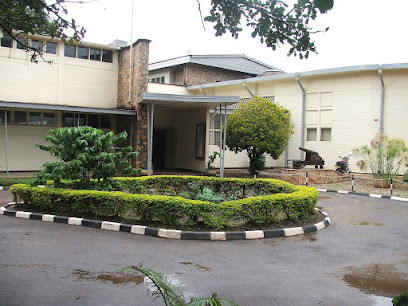
Kabaka's Palace
Explore the majestic Kabaka's Palace in Kampala, a vibrant symbol of the Buganda Kingdom's rich heritage and culture.
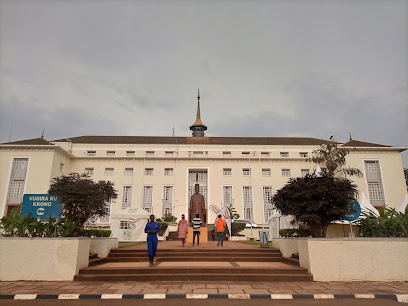
Uganda National Mosque
Explore the architectural beauty and cultural significance of the Uganda National Mosque, a key landmark in Kampala's vibrant landscape.
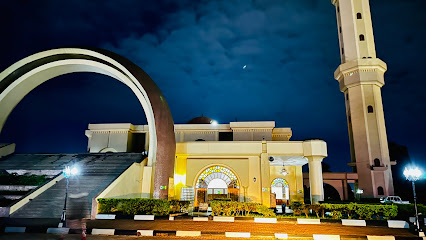
St Mary's Cathedral Rubaga
Explore the stunning St. Mary’s Cathedral Rubaga, a spiritual and architectural gem in the heart of Kampala, Uganda, rich in history and cultural significance.
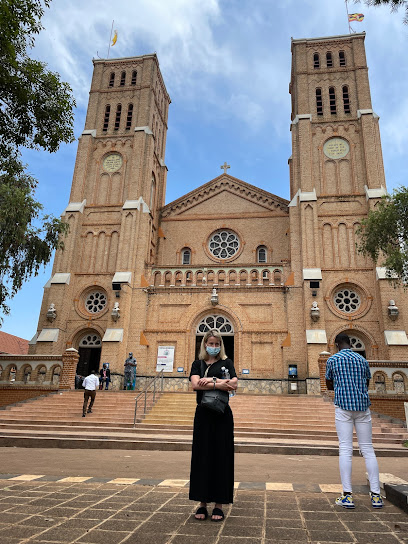
Crested Towers
Discover Crested Towers in Kampala, a landmark blending business and breathtaking views, showcasing Uganda's dynamic spirit.
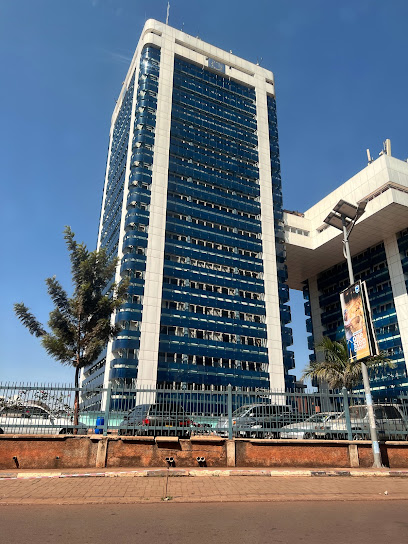
Namaganda Plaza/Kampala
Discover the vibrant shopping and cultural hub of Namaganda Plaza in Kampala, where local flair meets international brands and flavors.
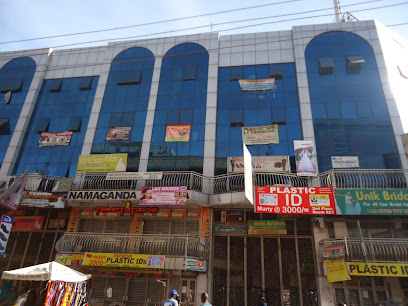
Mayfair Casino
Discover the excitement of Mayfair Casino, Kampala's premier nightlife destination with thrilling games and delectable dining options.
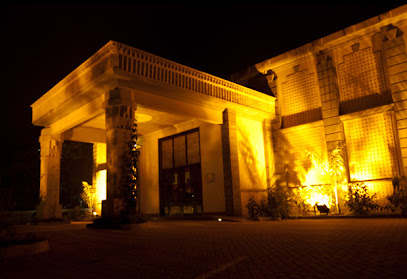
Sheraton Gardens
Discover tranquility at Sheraton Gardens, a lush oasis in Kampala that blends natural beauty with urban charm, perfect for relaxation and exploration.
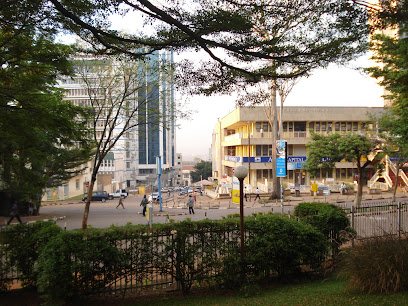
Independence Monument
Explore the Independence Monument in Kampala, a powerful symbol of Uganda's journey to freedom, surrounded by vibrant culture and history.
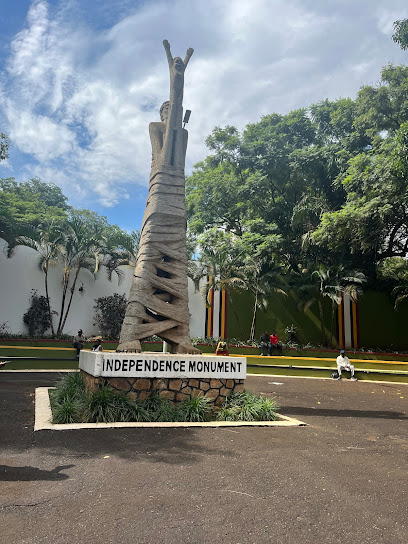
Zebra Plaza
Experience the heartbeat of Kampala at Zebra Plaza, a premier shopping destination blending culture, cuisine, and entertainment.
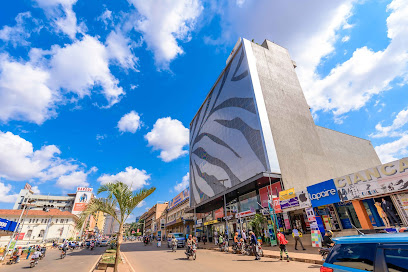
Market Plaza
Explore the vibrant Market Plaza in Kampala, a shopping and cultural hub offering unique crafts, delicious Ugandan cuisine, and a lively atmosphere.
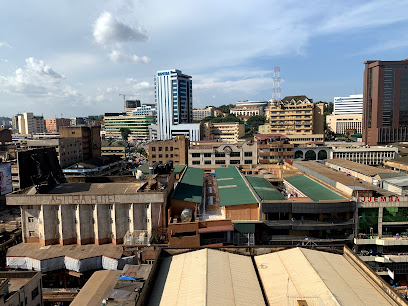
Unmissable attractions to see
Owino Market/Kampala
Explore the vibrant Owino Market in Kampala, where local culture, food, and shopping come together in a unique Ugandan experience.
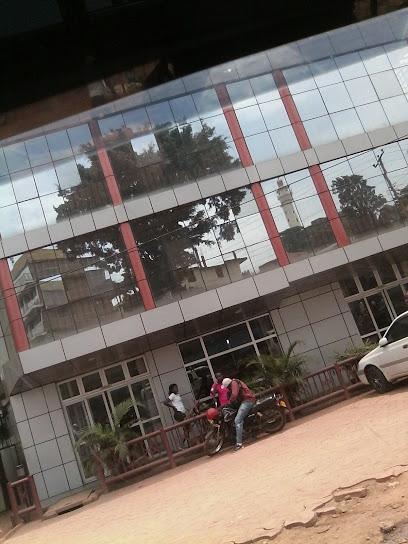
Centenary Park Kampala
Discover the beauty and tranquility of Centenary Park, a lush green haven in the heart of Kampala, perfect for relaxation and cultural experiences.
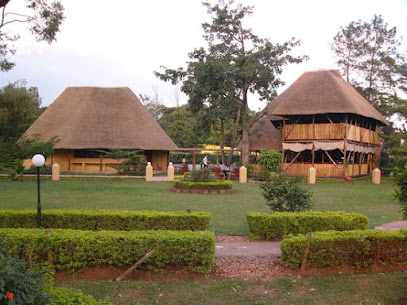
Ndere Cultural Centre
Discover the vibrant cultural heritage of Uganda at Ndere Cultural Centre, where music, dance, and delicious cuisine unite in an unforgettable experience.
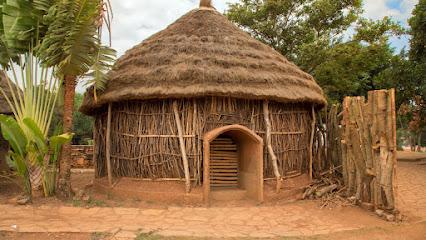
Uganda Wildlife Conservation Education Centre
Explore the Uganda Wildlife Conservation Education Centre in Entebbe for an unforgettable wildlife experience and a commitment to conservation.
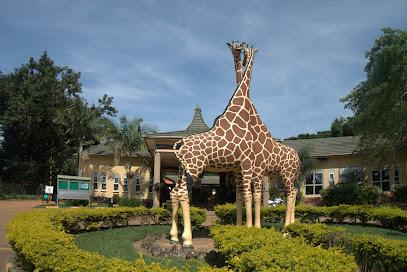
Kabaka's Palace
Experience the rich heritage, stunning architecture, and vibrant culture at Kabaka's Palace, a royal gem in the heart of Kampala, Uganda.
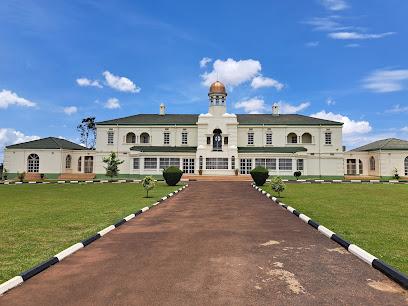
Uganda Museum
Explore the Uganda Museum: A journey through Uganda's rich history, culture, and natural heritage awaits you in the heart of Kampala.
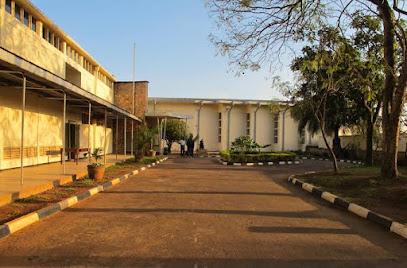
Entebbe Botanical Garden
Explore the Entebbe Botanical Garden, a tranquil retreat filled with exotic flora, birdwatching opportunities, and stunning views of Lake Victoria.
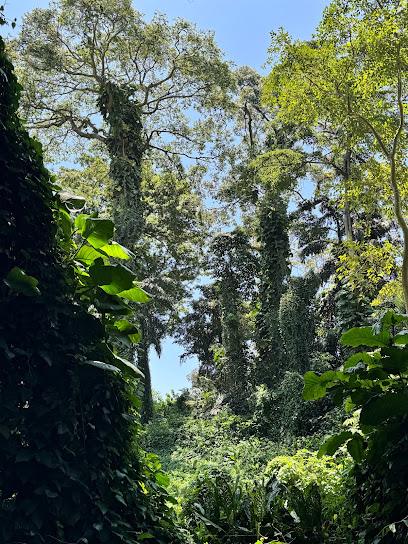
Uganda National Mosque
Explore the grandeur of Uganda National Mosque, a stunning architectural gem and cultural hub in the heart of Kampala, reflecting the nation's Islamic heritage.
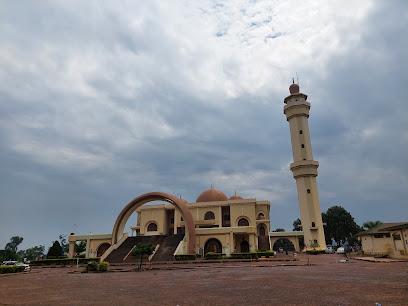
Wonder World Amusement Park
Experience the thrill and excitement at Wonder World Amusement Park in Kampala, Uganda's largest amusement destination for fun and adventure!
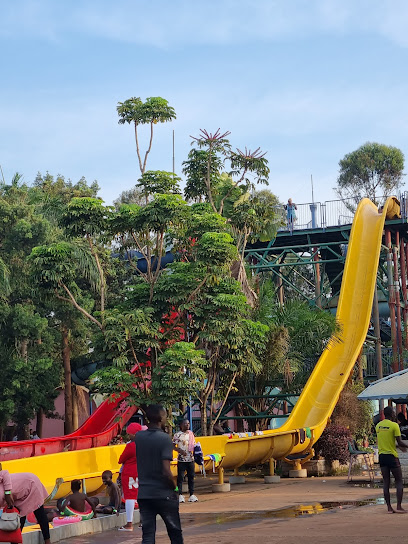
St Mary's Cathedral Rubaga
Discover the architectural beauty and spiritual significance of St. Mary's Cathedral Rubaga, a must-visit historic landmark in Kampala, Uganda.
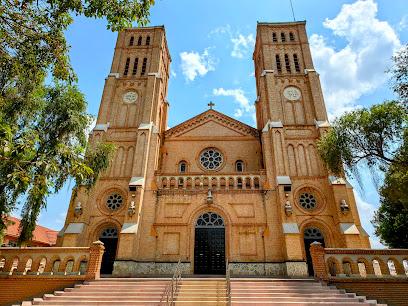
Munyonyo Martyrs' Shrine - Uganda Martyrs Basilica
Discover the spiritual heart of Uganda at Munyonyo Martyrs' Shrine, where history meets breathtaking views on the shores of Lake Victoria.
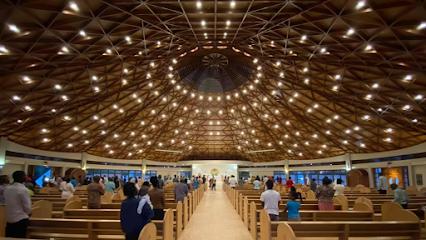
Mabamba Shoebills watching
Discover the enchanting wetlands of Mabamba and experience unforgettable shoebill sightings in Uganda's birdwatching paradise.
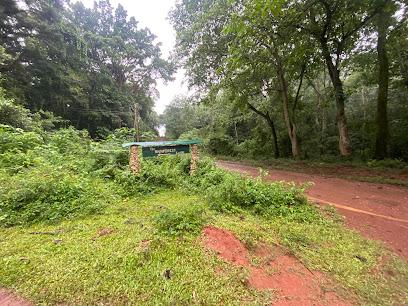
Namirembe Cathedral
Discover the spiritual and architectural wonders of Namirembe Cathedral, a stunning Anglican church with breathtaking views over Kampala.
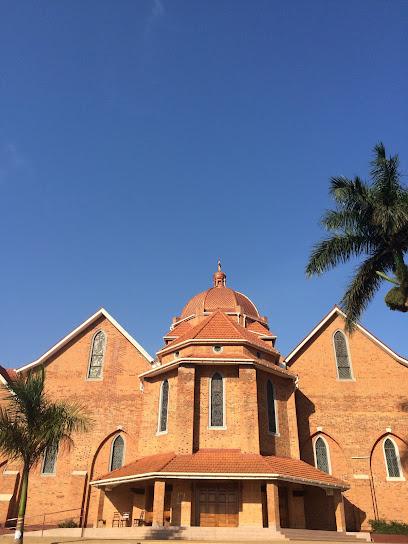
Mayfair Casino
Discover the vibrant nightlife at Mayfair Casino, Kampala's premier gaming and entertainment destination in the heart of Uganda.
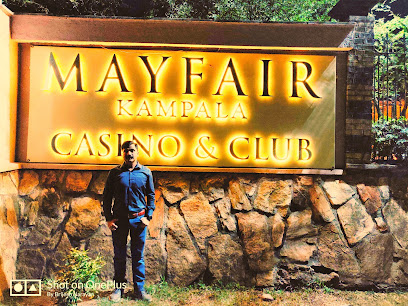
Baha'i House of Worship
Discover the Baha'i House of Worship in Kampala, a serene sanctuary blending spirituality and stunning architecture amidst lush gardens.
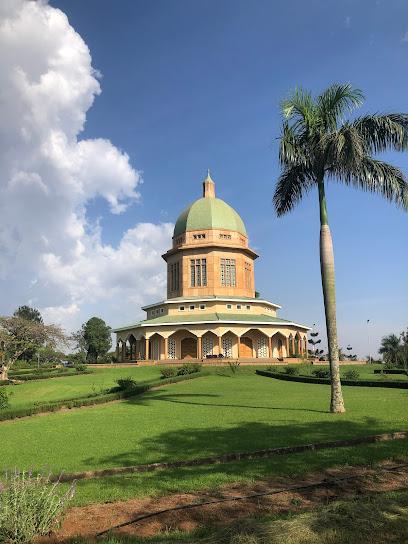
Essential places to dine
Charcoal Grill Restaurant Kiwatule
Experience the vibrant flavors of Uganda at Charcoal Grill Restaurant Kiwatule – where delicious grilled dishes meet warm hospitality.
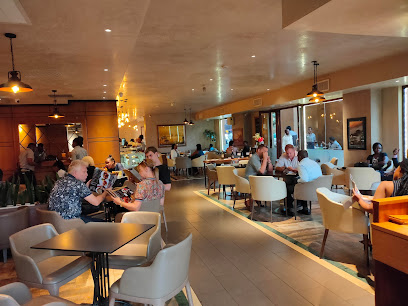
Piato Restaurant
Discover authentic East African flavors at Piato Restaurant in Kampala – perfect for breakfast or lunch with friends and family.
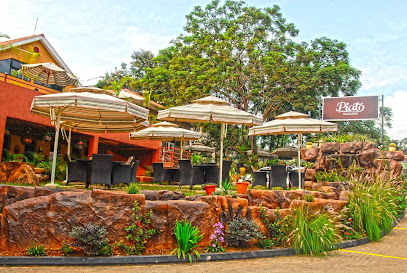
Asian Fusion Restaurant
Discover an exquisite blend of Chinese and Indian flavors at Kampala's premier Asian Fusion Restaurant for an unforgettable dining experience.
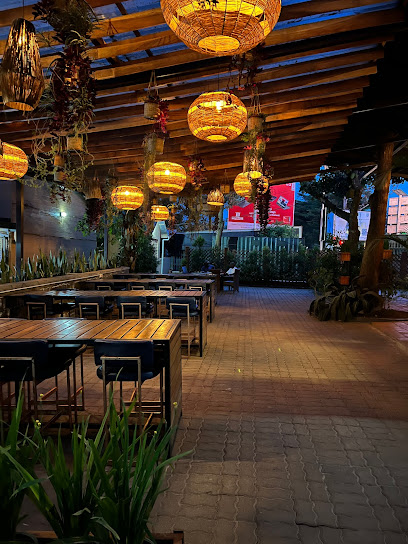
Torino
Experience exquisite dining at Torino in Kampala - where local flavors meet international cuisine in an artistic setting.
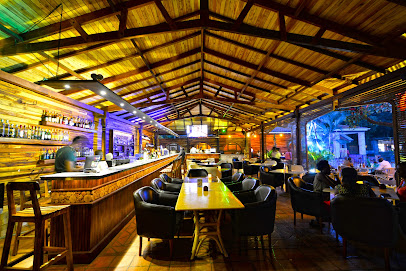
Mediterraneo Restaurant
Experience authentic Italian cuisine at Mediterraneo Restaurant in Kampala – where every dish tells a story.
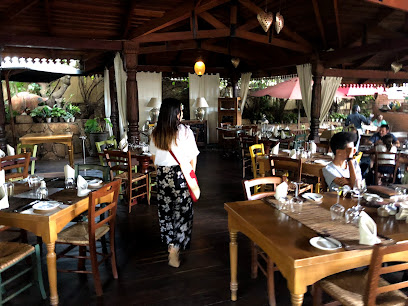
Olives Restaurant & Bar
Discover culinary delights at Olives Restaurant & Bar in Kampala - where local flavors meet international cuisine in a vibrant atmosphere.
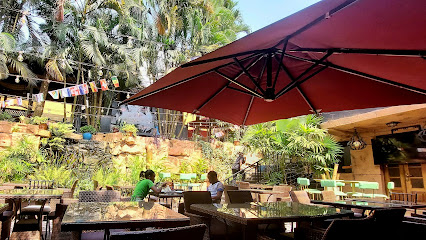
Tamarai
Experience authentic Thai flavors in Kampala at Tamarai - where exquisite cuisine meets vibrant lounge ambiance.
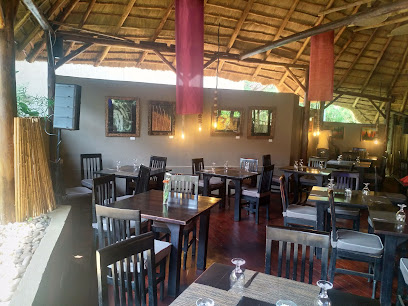
RESTO 1984 & TAVERN/ CAPITAL KITCHEN
Experience the vibrant flavors of Uganda at RESTO 1984 & TAVERN – where culinary tradition meets modern dining in Kampala's heart.
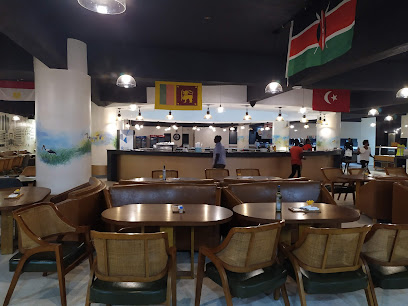
Meza and Salt
Experience authentic Lebanese cuisine at Meza and Salt in Kampala—where every dish tells a story of flavor.
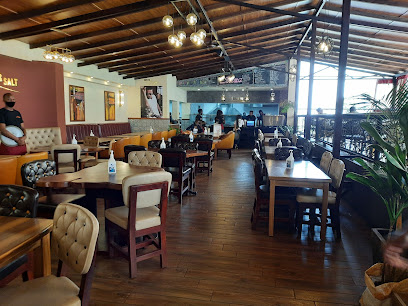
Stonehaven Restaurant & Winery
Discover the flavors of Uganda at Stonehaven Restaurant & Winery – where family-friendly dining meets exquisite wine selection in Kampala.
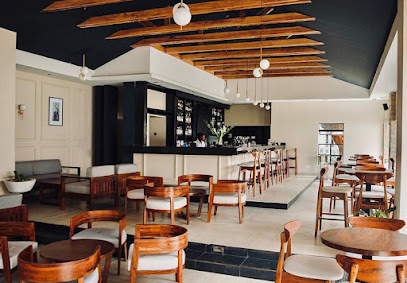
Kati Kati Africa Ltd
Discover the vibrant flavors of Uganda at Kati Kati Africa Ltd – where African and Indian cuisines meet deliciously.
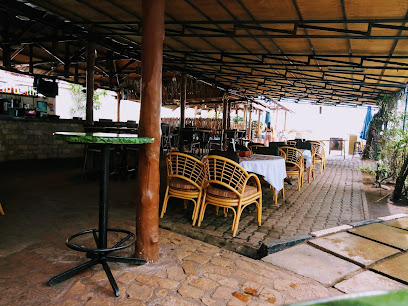
The Lawns Restaurant
Experience the ultimate fine dining at The Lawns Restaurant in Kampala, where exquisite barbecue meets serene ambiance.
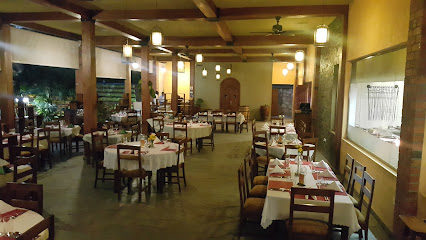
Izumi Restaurant & Lounge
Experience exquisite global cuisine in the heart of Kampala's Kololo neighborhood at Izumi Restaurant & Lounge.
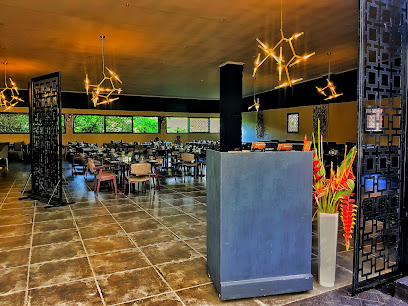
Cantine Divino
Discover exquisite dining at Cantine Divino in Kampala—where local flavors meet international cuisine in an elegant setting.
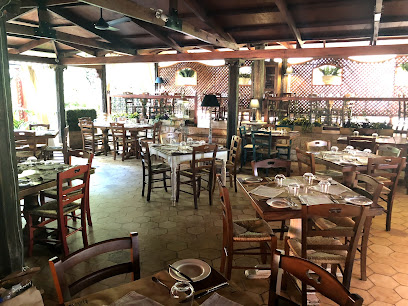
Mythos
Discover authentic Greek cuisine at Mythos Restaurant in Kololo, Kampala - where tradition meets flavor in a charming atmosphere.
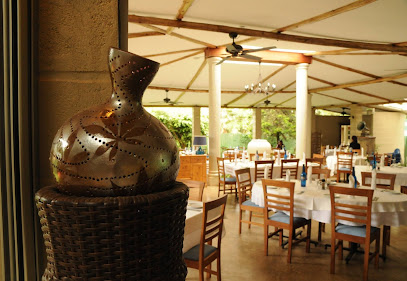
Markets, malls and hidden boutiques
Acacia Mall
Discover Acacia Mall, Kampala's vibrant shopping destination with diverse stores, dining, and entertainment options, perfect for tourists seeking local culture.
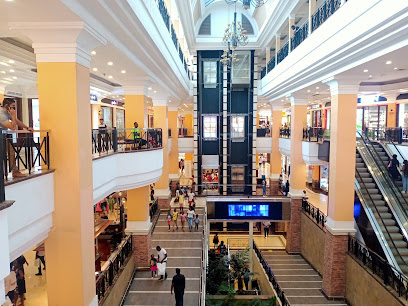
Garden City Shopping Mall
Discover the vibrant shopping and dining experience at Garden City Shopping Mall in Kampala, a premier destination for tourists and locals alike.
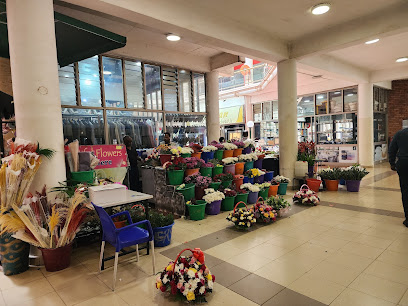
Forest Mall
Experience the dynamic shopping scene at Forest Mall in Kampala, offering diverse shops, delicious dining, and vibrant entertainment options.
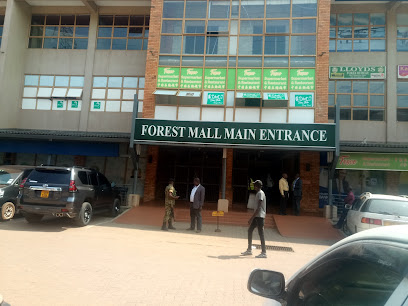
Bagala Craft
Explore Bagala Craft in Kampala for authentic Ugandan handicrafts and souvenirs that capture the essence of local culture and artistry.
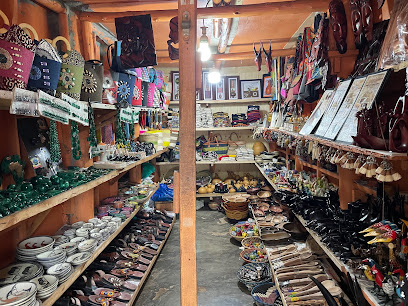
Mini price
Explore the vibrant Mini Price in Kampala, a shopping haven for clothing, electronics, and local culture, promising an unforgettable experience.
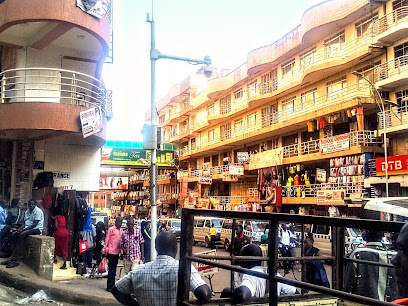
GLAVIN HOUSE OF BABIES
Explore Glavin House of Babies for quality baby products in the heart of Kampala, where care and comfort meet style.
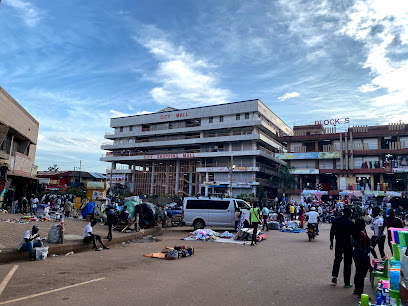
LADYBIRD BOUTIQUE
Explore the vibrant fashion scene at Ladybird Boutique, where local style meets contemporary trends in the heart of Kampala.
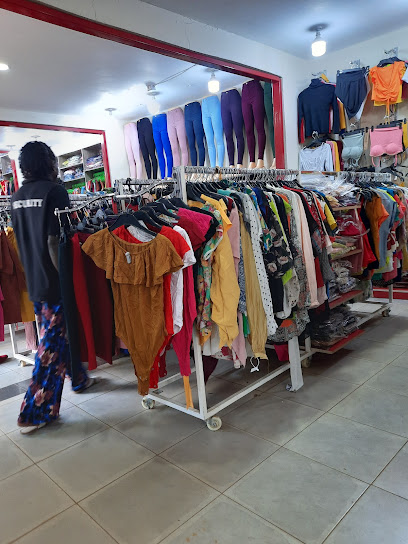
Green shop
Explore the vibrant world of Ugandan fashion at Green Shop, a clothing store that showcases unique designs and supports local artisans in Kampala.
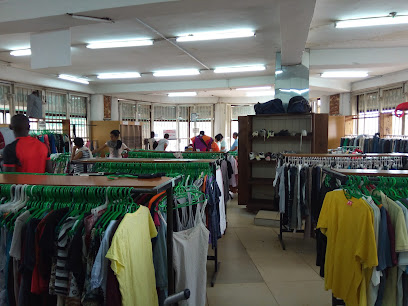
Adidas
Explore the latest in athletic fashion at the Adidas store in Kampala, where style meets performance for all ages.
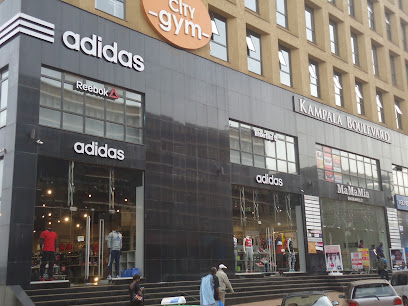
Kampala Fair
Explore unique women's fashion at Kampala Fair, the ultimate shopping experience in Kampala, Uganda, where vibrant styles meet local culture.
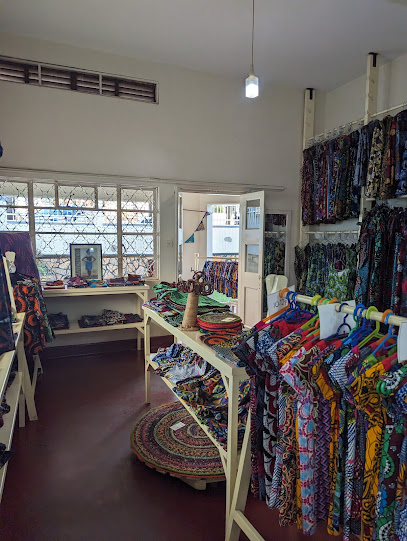
Apgifto Gift Shop
Discover unique gifts and local craftsmanship at Apgifto Gift Shop in Kampala, a treasure trove for every tourist seeking memorable keepsakes.
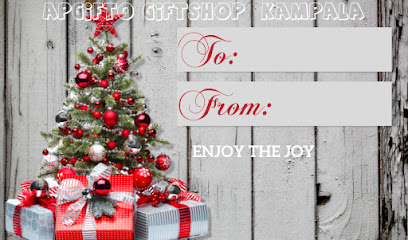
Gallery Antique Uganda
Explore Uganda's rich cultural heritage through exquisite antiques and art at Gallery Antique Uganda, a must-visit in Kampala.
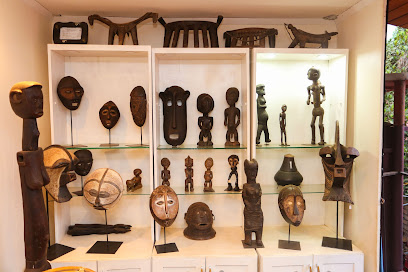
Lotus Clothing Store
Explore the vibrant fashion scene at Lotus Clothing Store, where local craftsmanship meets contemporary style in the heart of Kampala.
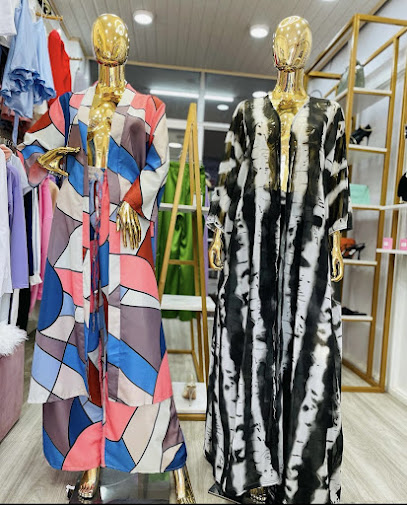
KONA
Discover the essence of Uganda at KONA, where unique African goods meet vibrant local culture in a charming shopping experience.
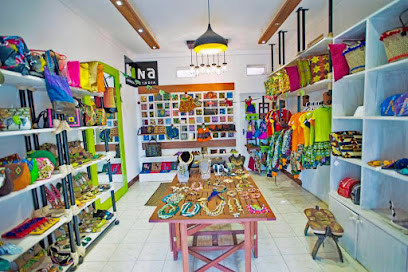
Kids Nook Store-Uganda
Explore Kids Nook Store in Kampala for the best in children's fashion and baby essentials, offering quality products in a cheerful environment.
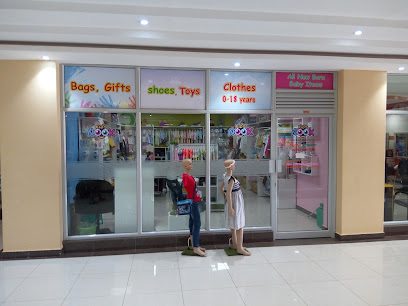
Essential bars & hidden hideouts
The Alchemist Kitchen and Bar
Discover the lively atmosphere and exquisite cocktails at The Alchemist Kitchen and Bar, a key nightlife destination in Kampala.
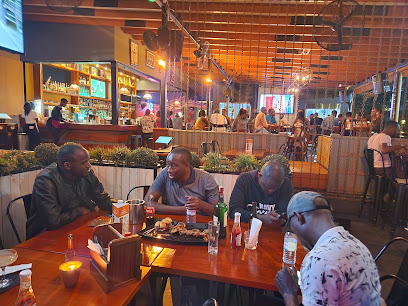
Riders Lounge Ug
Experience the vibrant atmosphere of Riders Lounge in Kampala, where refreshing drinks and a cool crowd await you.
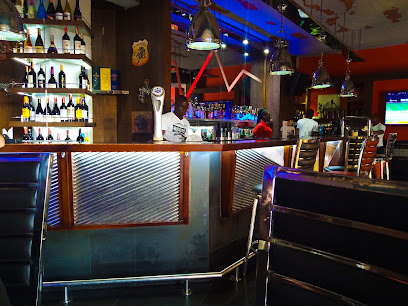
Thrones Lounge Bar & Restaurant
Dive into the lively atmosphere of Thrones Lounge Bar & Restaurant, where delightful drinks and delectable cuisine await in Kampala's vibrant nightlife.
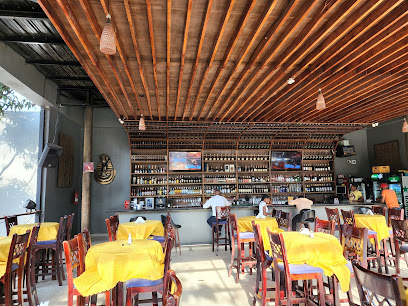
BRISK
Discover BRISK, Kampala's premier lounge offering a vibrant atmosphere, crafted cocktails, and the best local nightlife experience.
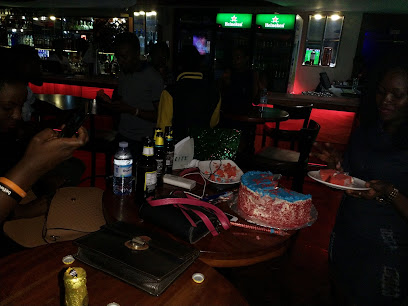
Capital
Discover the heart of Kampala's nightlife at this vibrant pub, where great drinks and lively entertainment await every night.
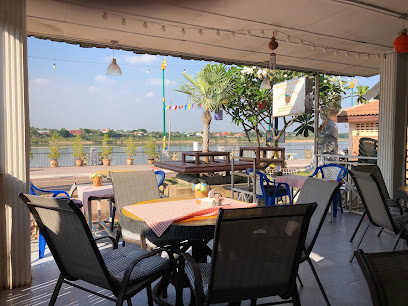
Kush Lounge
Discover Kush Lounge, where vibrant nightlife meets a relaxed atmosphere in the heart of Kampala, perfect for unwinding or socializing.
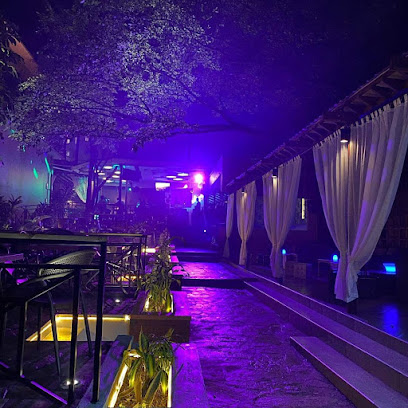
Cask Lounge
Discover the vibrant flavors of Kampala at Cask Lounge, where local and international cuisine meets a lively atmosphere.
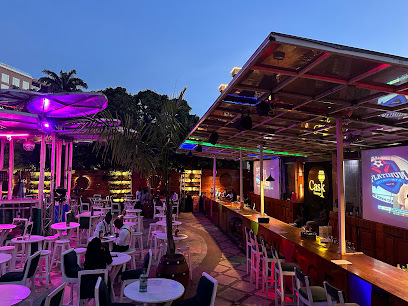
Otters Bar
Experience the vibrant nightlife of Kampala at Otters Bar, where great drinks and music create unforgettable memories.
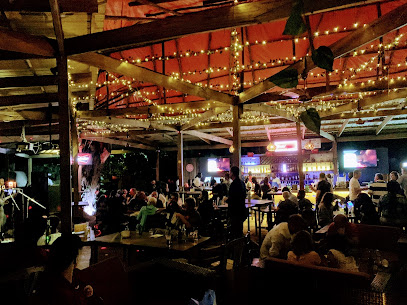
Happy Boyz Bars
Discover the vibrant nightlife of Kampala at Happy Boyz Bars, where local ambiance meets refreshing drinks in a lively setting.
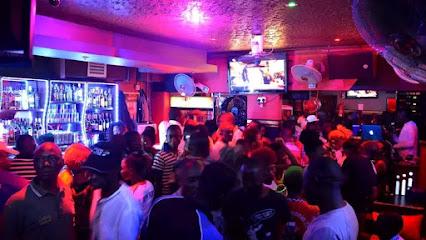
The Vineyard Cafe & Wine Bar
Discover a delightful blend of exquisite cuisine and an extensive wine selection at The Vineyard Cafe & Wine Bar in Kampala.
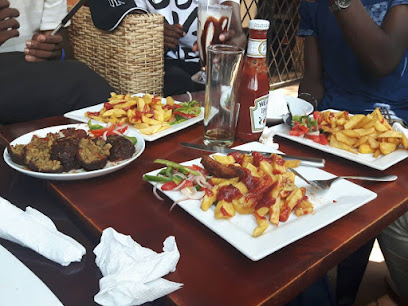
Hunters Lounge, Bar & Restaurant
Discover the vibrant flavors of Uganda at Hunters Lounge, a grill and restaurant in Kampala offering a delicious menu and inviting atmosphere.
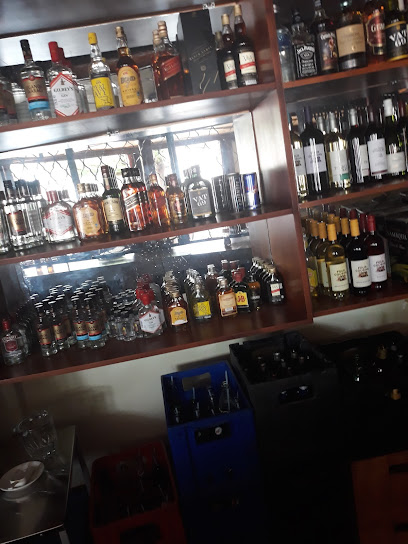
The Terrace
Experience Kampala's vibrant nightlife at The Terrace, where expertly crafted cocktails and stunning views create unforgettable moments.
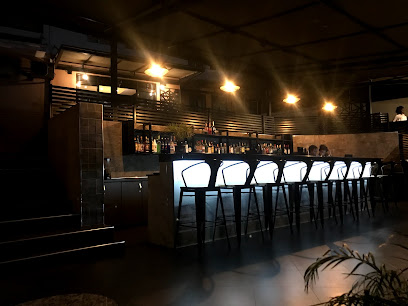
Top Pub
Discover the electric ambiance and vibrant nightlife at Top Pub, a must-visit bar in the heart of Kampala for a memorable night out.
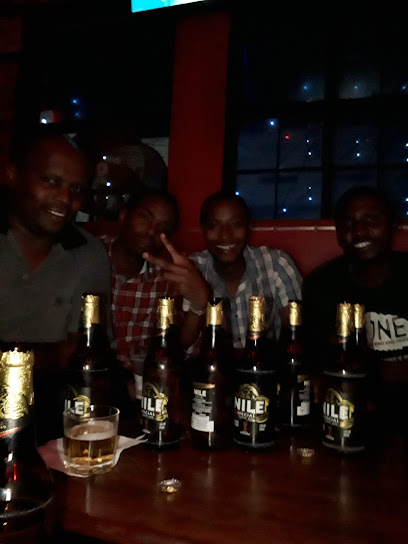
Urban Bar and Lounge
Experience the vibrant nightlife at Urban Bar and Lounge in Kampala, where delicious grilled dishes meet lively music and a welcoming atmosphere.
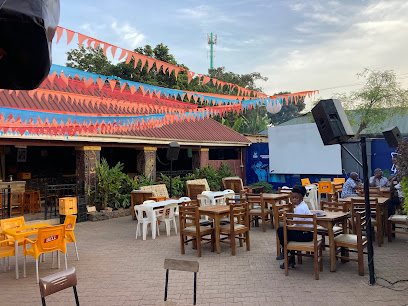
Plot 8 Restaurant and Lounge
Discover the lively atmosphere and delicious cuisine at Plot 8 Restaurant and Lounge, a premier bar in Kampala, perfect for unwinding and entertainment.
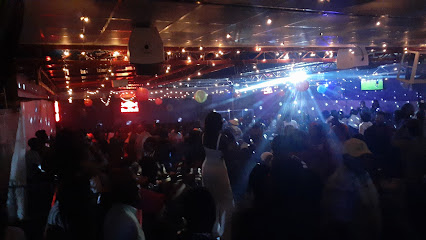
Local Phrases
-
- HelloYawe
[yah-weh] - GoodbyeBye bye
[bye bye] - YesYe
[yeh] - NoNedda
[ned-da] - Please/You're welcomeKale
[ka-leh] - Thank youWebale
[weh-bah-leh] - Excuse me/SorryNkusaba ogera
[nku-sa-bah oh-geh-rah] - How are you?Oli otya?
[oh-lee oh-tyah] - Fine. And you?Gyendi. Nawe?
[gen-dee. nah-weh] - Do you speak English?Owulira Engereza?
[oh-woo-lee-rah en-geh-reh-zah] - I don't understandSindaba
[sin-dah-bah]
- HelloYawe
-
- I'd like to see the menu, pleaseNkola kuyita menu, kale
[en-koh-lah koo-yee-tah meh-noo, ka-leh] - I don't eat meatSikula enyama
[see-koo-lah en-yah-mah] - Cheers!Tubagalire!
[too-bah-gah-lee-reh] - I would like to pay, pleaseNkola okugula, kale
[en-koh-lah oh-koo-goo-lah, ka-leh]
- I'd like to see the menu, pleaseNkola kuyita menu, kale
-
- Help!Tusabe!
[too-sah-beh] - Go away!Tulekawo!
[too-leh-kah-woh] - Call the Police!Tunywe poliisi!
[too-ny-weh poh-lee-see] - Call a doctor!Tunywe daktari!
[too-ny-weh dahk-tah-ree] - I'm lostNkuyisa
[en-koo-yee-sah] - I'm illNze nnyamba
[n-zeh n-nyahm-bah]
- Help!Tusabe!
-
- I'd like to buy...Nkola okola...
[en-koh-lah oh-koh-lah...] - I'm just lookingNkikola okulaba
[en-kee-koh-lah oh-koo-lah-bah] - How much is it?Shs ng'omu?
[shil-lings ng-oh-moo] - That's too expensiveEbiyitiridde
[eh-bee-yee-tee-reed-deh] - Can you lower the price?Oyagala okusigala omuli?
[oh-yah-gah-lah oh-koo-see-gah-lah oh-moo-lee]
- I'd like to buy...Nkola okola...
-
- What time is it?Sente ekiyi?
[sen-teh eh-kee-yee] - It's one o'clockSente emu
[sen-teh eh-moo] - Half past (10)Sente emikumi n'omusanvu
[sen-teh eh-mee-koo-mee n-oh-moo-sahn-voo] - MorningOlugendo
[oh-loo-gen-doh] - AfternoonOluyimba
[oh-loo-yim-bah] - EveningOlubeera
[oh-loo-beh-rah] - YesterdayJino
[jee-noh] - TodayLuno
[loo-noh] - TomorrowKino
[kee-noh] - 1Mmoja
[m-moh-jah] - 2Bili
[bee-lee] - 3Ssatu
[s-sah-too] - 4Nnya
[ny-nyah] - 5Ttano
[t-tah-noh] - 6Mukaaga
[moo-kah-gah] - 7Mmeka
[m-meh-kah] - 8Mmunna
[m-moo-nah] - 9Kyenda
[chee-en-dah] - 10Ikumi
[ee-koo-mee]
- What time is it?Sente ekiyi?
-
- Where's a/the...?Wali a/the...?
[wah-lee ah/the...] - What's the address?Eraali ya kibiina ki?
[eh-rah-ah-lee yah kee-bee-nah kee] - Can you show me (on the map)?Oyatadde okunyumiriza (mu mapu)?
[oh-yah-tah-deh oh-koo-nyoo-mee-ree-zah (moo mah-poo)] - When's the next (bus)?Yali awo omugendo ogw'omu?
[yah-lee ah-woh oh-moo-gen-doh oh-gw-oh-moo] - A ticket (to ....)Tekeeti (ku ....)
[teh-kay-tee (koo ....)]
- Where's a/the...?Wali a/the...?
History of Kampala
-
Kampala's roots can be traced back to the Buganda Kingdom, which was one of the most powerful and influential kingdoms in East Africa. Established in the 14th century, the kingdom's capital was originally located in Mengo, an area that now forms part of modern Kampala. The Buganda people played a significant role in the region's cultural and political landscape, with their influence extending into present-day Uganda.
-
In the late 19th century, Kampala became a focal point of British colonial interests. The city was officially declared the capital of the British Protectorate of Uganda in 1905. During this period, Kampala experienced significant infrastructural development, including the construction of road networks, administrative buildings, and the Uganda Railway, which linked the city to the port of Mombasa in Kenya. This era also saw the introduction of Western education and Christianity, which have had a lasting impact on the city's culture and society.
-
Uganda gained independence from British colonial rule on October 9, 1962, with Kampala as its capital. The city became the administrative and economic hub of the newly independent nation. The early post-independence years were marked by political instability, including the regimes of Milton Obote and Idi Amin, which had profound effects on Kampala. Despite these challenges, the city remained resilient, continuing to grow and develop amidst the turmoil.
-
Today, Kampala is a bustling metropolis and the heart of Uganda's political, economic, and cultural life. The city is characterized by its vibrant markets, diverse neighborhoods, and a rich blend of traditional and modern influences. Key landmarks include the Uganda National Mosque, the Uganda Museum, and the Makerere University, one of Africa's oldest and most prestigious institutions of higher learning. The city's landscape is also dotted with green hills and expansive wetlands, offering a unique blend of urban and natural environments.
-
Kampala is a melting pot of cultures and traditions, hosting numerous cultural festivals throughout the year. The Kiganda cultural dances, the Ndere Troupe performances, and the annual Kampala City Festival are just a few examples of the city's rich cultural tapestry. These events showcase the diverse heritage of the city's inhabitants, including the Baganda, Banyankole, Basoga, and many other ethnic groups. Traditional crafts, music, and dance play a significant role in the city's cultural identity, offering visitors a glimpse into the vibrant life of Kampala.
-
Kampala's architecture is a reflection of its complex history and cultural diversity. The city features a mix of colonial-era buildings, modern skyscrapers, and traditional African structures. Notable architectural landmarks include the Bulange, the official seat of the Buganda Kingdom, and the Namirembe and Rubaga Cathedrals, which are significant religious and historical sites. The city's architecture not only tells the story of its past but also highlights its ongoing evolution as a modern African metropolis.
Kampala Essentials
-
Kampala is accessible via Entebbe International Airport (EBB), which is approximately 40 kilometers from the city. Several international airlines operate flights to Entebbe. From the airport, you can take a taxi or airport shuttle to Kampala, a journey that typically takes around 1 to 1.5 hours depending on traffic. Alternatively, you can use ride-hailing services like Uber and Bolt.
-
Kampala offers various transportation options, including taxis, boda-bodas (motorcycle taxis), and matatus (shared minibuses). Taxis and ride-hailing services such as Uber and Bolt are more comfortable and safer, though more expensive. Boda-bodas are quick but can be risky. Matatus are the most economical but can be crowded and less predictable. Car rentals are also available for those who prefer to drive themselves, but note that traffic can be quite chaotic.
-
The official currency in Uganda is the Ugandan Shilling (UGX). Credit cards are widely accepted in hotels, restaurants, and larger shops, but it is advisable to carry some cash, especially for smaller establishments and markets. ATMs are widely available in Kampala, and most accept international cards. Currency exchange services are also available at the airport and in various locations within the city.
-
Kampala is generally safe for tourists, but like any major city, it has areas with higher crime rates. Petty theft and pickpocketing can occur in crowded places, so keep an eye on your belongings. Avoid walking alone at night, especially in areas like Kisenyi and Katwe. Use reputable taxi services and avoid accepting rides from strangers. Be cautious with your valuables and avoid displaying them openly.
-
In case of emergency, dial 999 or 112 for immediate assistance. Kampala has several hospitals and medical facilities, including Mulago National Referral Hospital. Private hospitals like International Hospital Kampala (IHK) and Nakasero Hospital offer high-quality care. It is recommended to have travel insurance that covers medical emergencies. Pharmacies are widely available for minor health issues.
-
Fashion: Do dress modestly; avoid overly revealing clothing, especially in more conservative areas. Religion: Do respect local customs and traditions; remove your shoes when entering religious sites and dress appropriately. Public Transport: Do be polite and patient; matatus can be crowded and sometimes run late. Don't use boda-bodas without a helmet. Greetings: Do greet people with a handshake; Ugandans are generally friendly and appreciate polite behavior. Eating & Drinking: Do try local dishes and accept food offerings graciously. Don't drink tap water; always opt for bottled water.
-
To experience Kampala like a local, visit the Nakasero Market for fresh produce and local goods. Engage with locals, who are often friendly and willing to share stories. Don't miss exploring the cultural sites, such as the Kasubi Tombs and Uganda Museum. For a unique nightlife experience, visit the bustling areas of Kabalagala and Kololo. Always negotiate prices in markets and with boda-boda drivers.
Trending Landmark in Kampala
-
Sheraton Kampala Hotel
-
Owino Market/Kampala
-
Kampala Boulevard
-
Digisat Surveillance Home (City square Kampala)
-
Uganda Museum
-
Kabaka's Palace
-
Uganda National Mosque
-
St Mary's Cathedral Rubaga
-
Crested Towers
-
Namaganda Plaza/Kampala
-
Mayfair Casino
-
Sheraton Gardens
-
Independence Monument
-
Zebra Plaza
-
Market Plaza
Nearby Cities to Kampala
-
Things To Do in Entebbe
-
Things To Do in Jinja
-
Things To Do in Masaka
-
Things To Do in Mbale
-
Things To Do in Bukoba
-
Things To Do in Lira
-
Things To Do in Mbarara
-
Things To Do in Kisumu
-
Things To Do in Fort Portal
-
Things To Do in Gulu
-
Things To Do in Kitale
-
Things To Do in Eldoret
-
Things To Do in Nyagatare
-
Things To Do in Mwanza
-
Things To Do in Arua

















